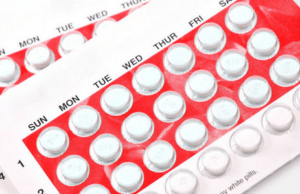Stakeholders worried over low family planning acceptor rate in Central Region
 Despite intensified awareness campaigns on family planning; stakeholders in the Central Region have expressed worry about Family Planning Acceptor Rate (FPAR) due to its low patronage.
Despite intensified awareness campaigns on family planning; stakeholders in the Central Region have expressed worry about Family Planning Acceptor Rate (FPAR) due to its low patronage.
They indicated that although the Region had more than 60 adolescent friendly corners in-charge of family planning services among others, many of its residents were reluctant to embrace the services.
They expressed these sentiments during the Regional Technical Working Group quarterly meeting on Family Planning in Cape Coast on Wednesday.
They however praised the Regional Health Directorate for the innovative steps taken which had improved patronage marginally.
The programme was supported by the United Nations Population Fund (UNFPA), in collaboration with the Regional Coordinating Council and Ghana Health Service (GHS).
Mrs Beatrice Essilfie, Regional Public Health Nurse, outlined some of the measures adopted to scale-up acceptor rate.
These included quarterly family planning week celebration in all the 22 Districts, intensification of home visits, public education, counselling and use of “Vero-PACK” for home services.
The innovation, according to her, has improved family planning packaging to facilitate door-to-door services to all clients.
Giving statistics to buttress the marginal rise, she announced that FPAR has increased from 27.3, 25.1,29.7, 30.6 percent in 2014, 2015, 2016 and half of 2017 respectively.
Mrs Thywill Eyram Kpe, Regional Director of the Department of Gender, called for the support of all to make the effort a success.
She said the Department had embarked on various local initiatives to reduce to the barest minimum child marriages, teenage pregnancies and Sexual and Gender Based Violence (SGBV).
The objective was to provide comprehensive sexuality education and services to especially, the youth, to enable them to make informed decision and choices.
Other representatives including the Planned Parenthood Association of Ghana (PPAG), Ghana Education Service (GES), National Youth Authority, Non-governmental Organizations (NGOs) among others took turns to share their successes and challenges.
They largely expressed concern over the distressing data on the low acceptor rate in some districts and other forms of violations of human rights of girls.
Again, they enumerated some reasons including poverty, illiteracy, negative cultural practices and lack of role models for young girls as the common driving forces of teenage pregnancies and child marriages in the Region.
They also advocated collective effort and united front to improve public education, data synchronization and institutional linkages to increase family planning acceptor rate.
Source: GNA
